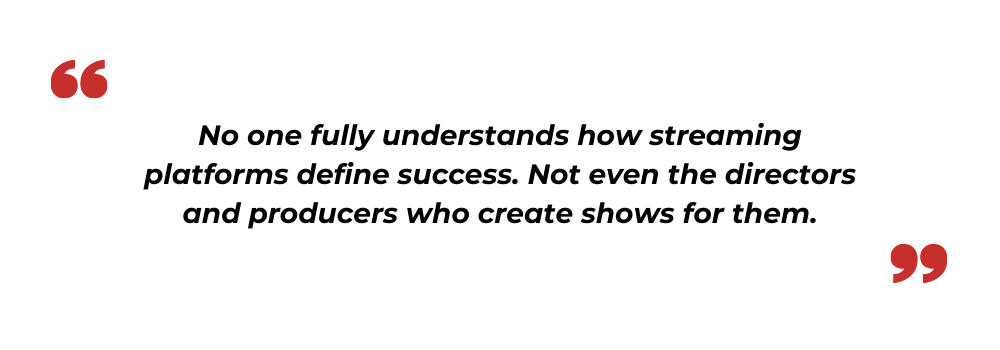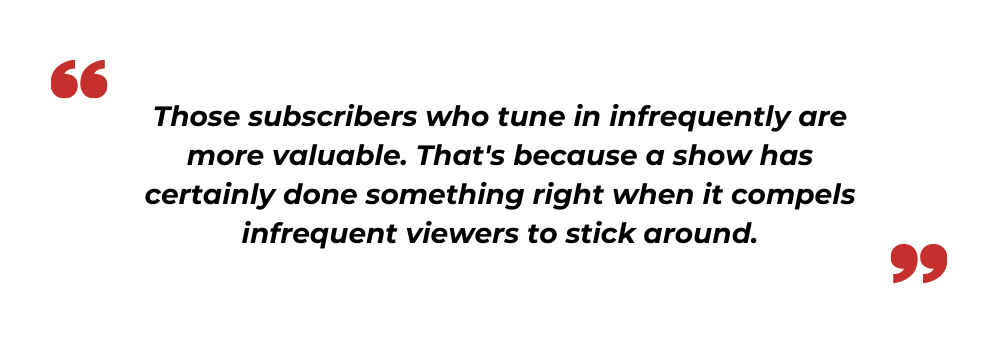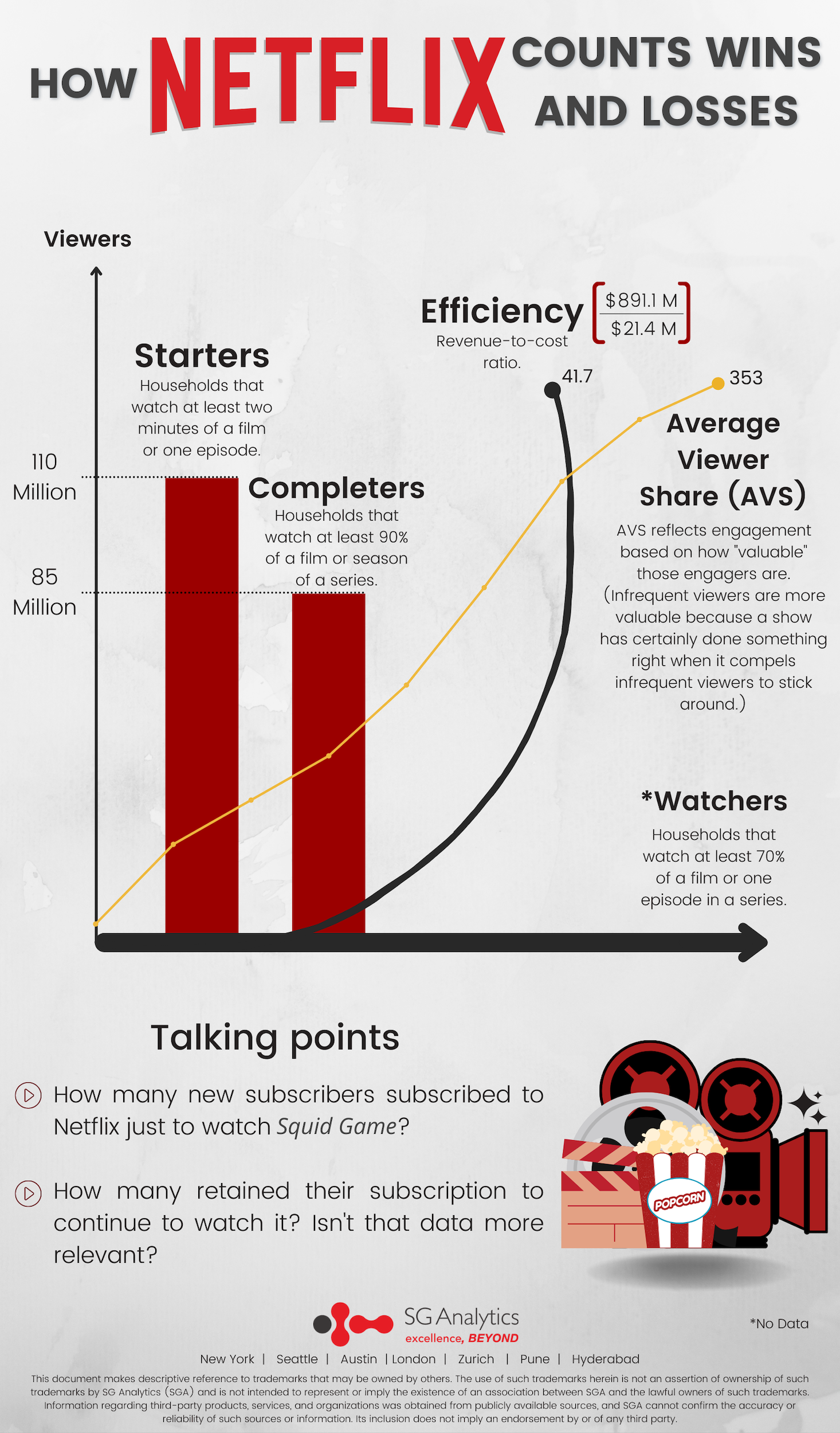Early July this year, Disney released the long-awaited Black Widow. However, instead of releasing it in theaters worldwide, as had every film from the Marvel franchise, Disney released the origin story on its streaming platform, Disney+. What’s more, it did so after 14 long months of delay, thanks to the pandemic.

What made news, however, was the fact that soon after the film was released, Disney revealed how much it had earned over the weekend. Over $60 million, Disney reported. Not bad for a film released just online.
Why was this newsworthy? Because for the first time, a streaming platform had publicly revealed the earnings made from a release. Before, platforms would only disclose indicators of success, such as viewing hours or the increase in subscribers following a release. Disney put a big, fat number on the table.
Netflix, one of Disney’s strongest rivals, has never disclosed such a figure. But recently, following the cosmic success of its original series, Squid Game, Bloomberg reported that Netflix made over 40 times of what it had invested in producing the show, according to leaked data. The story also noted that the controversial Dave Chappelle special, The Closer, could not even break-even.
The problem is, operating on a subscription model, Netflix, like Disney, does not make money as traditional Hollywood productions do—that is, on single titles. What, then, explains the sums? Disney disclosed its earnings publicly, but it was devoid of context. Netflix’s numbers wouldn’t even have come out had the data not leaked. It was supposed to be strictly internal.
 “Over $60 million, Disney reported. Not bad for a film released just online.”
“Over $60 million, Disney reported. Not bad for a film released just online.”
No one fully understands how streaming platforms define success, not even the directors and producers who create shows for them. But we can get an idea by piecing together leaks and admissions from here and there. Here goes.




 “The values of Starters and Completers are most telling of whether a show ought to be renewed.”
“The values of Starters and Completers are most telling of whether a show ought to be renewed.”






